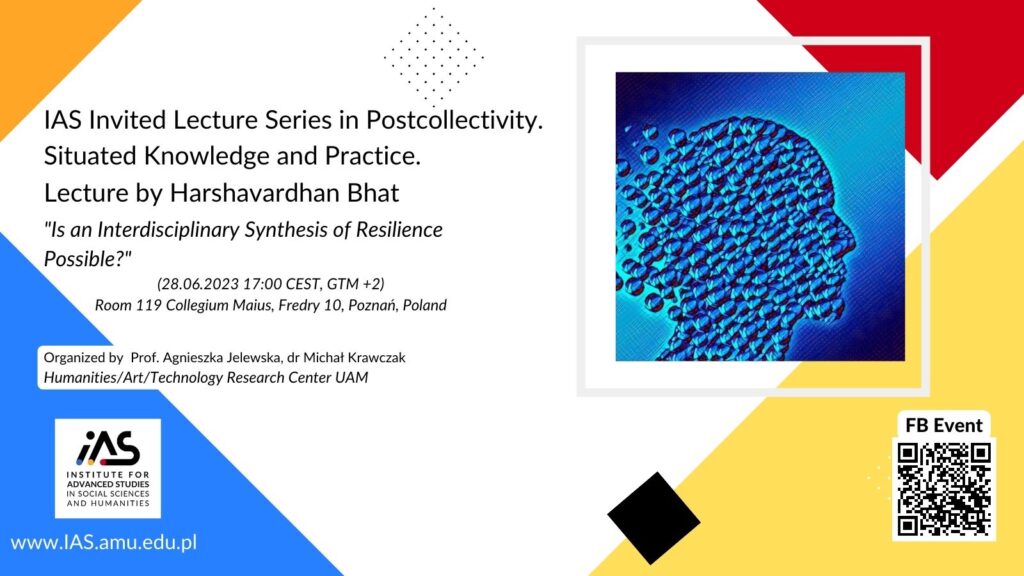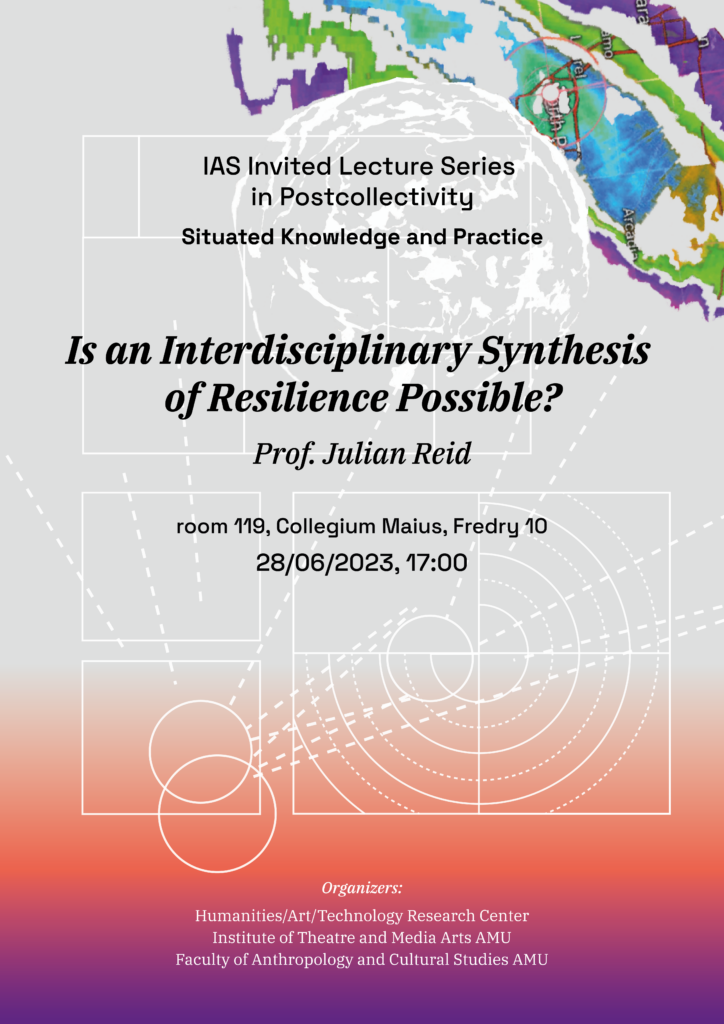Lecture by Prof. Julian Reid (University of Lapland)
Title: Is an Interdisciplinary Synthesis of Resilience Possible?
(28.06.2023 17:00 CEST, GTM +2)
Room 119 Collegium Maius, Fredry 10, Poznań, Poland
Keywords: Resilience, Science, Neoliberalism, Humanity, Postcollectivity, Critique, Neurobiology, New Materialism, Oxytocin
Abstract:
The concept of resilience is increasingly influential across the humanities and sciences but discussions of its significance between different fields of knowledge remain under-developed. In the humanities and social sciences the value of resilience is contested and often dismissed as an element of the ideology of neoliberalism. In the life sciences, by contrast, the perspective on resilience is profoundly upbeat, where the ability to ‘achieve a successful outcome in the face of adversity’ is seen as an essential attribute of human health and the ultimate goal of human growth. Why is there so much critique of resilience in the humanities and social sciences and so little in the life sciences? Are the life sciences deaf to the argument concerning the neoliberal underpinnings of resilience? Is the critique of resilience unjustified and simply out of touch with the development of the cutting edges of the life sciences, and neurobiology in particular? Or is this apparent deafness of the life sciences an expression of its service to political regimes of power? Theorists of biopower have already berated neurobiology for being unresponsive to critiques of its functions over the years, and its apparent deafness to critiques of resilience would only seem to further such claims. However, the rise of new materialist approaches in the humanities and social sciences brings with it a perspective on neurobiology as a field of potential emancipation, postcollective resistance, and political action. Are there ways that neurobiological accounts of the sources of resilience might be mobilised to resist crudely neoliberal discourses and emancipate humans from conditions of servitude? In this lecture, Julian Reid responds to this question by discussing his research into contemporary neurobiological approaches to resilience and especially the advances which are currently claimed for the importance of the discovery of functions of the neuropeptide hormone, oxytocin, in explaining the relative differences in resilience of human beings and other creatures.
Facebook event: https://www.facebook.com/events/637853618260091/?ref=newsfeed



